The IB Primary Years Programme (PYP) is a curriculum framework designed for students aged 3 to 12. It focuses on the development of the whole child as an inquirer, both in the classroom and in the world outside. It is defined by six Trans-disciplinary themes of global significance, explored using knowledge, concepts and skills derived from various subject areas, with a powerful emphasis on inquiry-based learning and taking action through learning.
.jpg)
The PYP leads directly into the Middle Years Programme (IBMYP). It can also prepare learners for other inquiry based middle years programmes as most of the knowledge, skills and understanding that students acquire during PYP are readily transferable.
The PYP is a way of teaching and learning is usually taught in conjunction with a curriculum which details more specific content. At RWA we have taken the best from national curricula around the world and benchmarked this content against UK National Curriculum. Throughout their learning students acquire and apply these skills:
| Social Skills | Research Skills |
| Thinking Skills | Communication Skills |
| Self-Management Skills | |
The school focuses on developing a series of attributes in the students that make up the PYP Learner Profile:
| Inquirers | Thinkers |
| Communicators | Risk-Takers |
| Knowledgable | Principled |
| Caring | Open-Minded |
| Reflective | Balanced |
The IB Primary Years Programme (PYP) is a curriculum framework designed for students aged 3 to 12. It focuses on the development of the whole child as an inquirer, both in the classroom and in the world outside. It is defined by six Trans-disciplinary themes of global significance, explored using knowledge and skills derived from six subject areas, with a powerful emphasis on inquiry-based learning. The PYP leads directly into the Middle Years Programme (MYP). It can also prepare learners for other inquiry based middle years programmes as most of the knowledge; skills and understanding that students acquire during PYP are readily transferable.
The PYP is a way of teaching and learning it is usually taught in conjunction with a curriculum which details more specific content. At RWA we have taken the best from national curricula around the world and benchmarked this content against UK National Curriculum Standards.
Find out more:
Given below is the link to our Primary Years Curriculum Guide that provides general information about the curriculum, our approach to teaching and learning in the Primary School and tries to answer questions that you may have about our curriculum. Please take the time to read the curriculum guide which outlines, in detail, the curriculum that we offer in the Primary School.
- Programme Of Inquiry
- PRE-KG Parent Curriculum Guide
- KG1 Parent Curriculum Guide
- KG2 Parent Curriculum Guide
- Grade 1 Parent Curriculum Guide
- Grade 2 Parent Curriculum Guide
- Grade 3 Parent Curriculum Guide
- Grade 4 Parent Curriculum Guide
- Grade 5 Parent Curriculum Guide
- Guide Regulations | PDF 170KB
- Rules of IB World Schools/Programme | PDF 201KB
- Standards and Practices | PDF 1.76MB
School Policies
Play is the highest form of research
Albert Einstein
The Pre-KG & KG1 programme at Raffles World Academy follows the International Baccalaureate (IB), Primary Years Programme (PYP) alongside the EYFS. The curriculum has been personalized and reflects the holistic nature of children’s learning. Both programmes focus on the importance of learning through play and a commitment to structured, purposeful inquiry, as it underpins all development and learning for young children.

We adhere to the principles of developmentally appropriate practice, by encouraging children to follow their own interests. This is accomplished through various purposeful activities within the classroom and through a stimulating outdoor environment. This choice empowers our children to take responsibility for their learning, as well as, allowing them to work independently and collaboratively.
Through the IB Learner Profile, our children become inquirers, knowledgeable and caring individuals who help to create a better and more peaceful world through intercultural understanding, respect and tolerance.
The Discovery Garden and outdoor provision add a wonderful richness to childhood at Raffles World Academy.

The aim of Primary years Programme is to develop internationally minded people who, recognizing their common humanity and shared guardianship of the planet help to create a better and more peaceful world.




